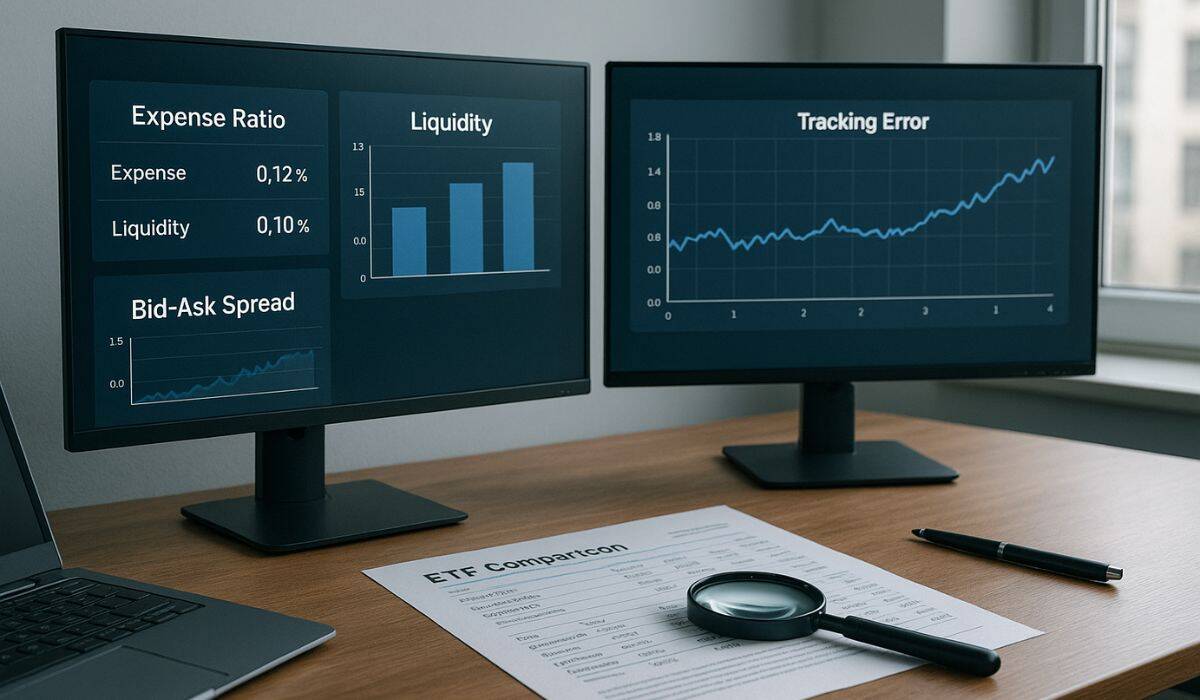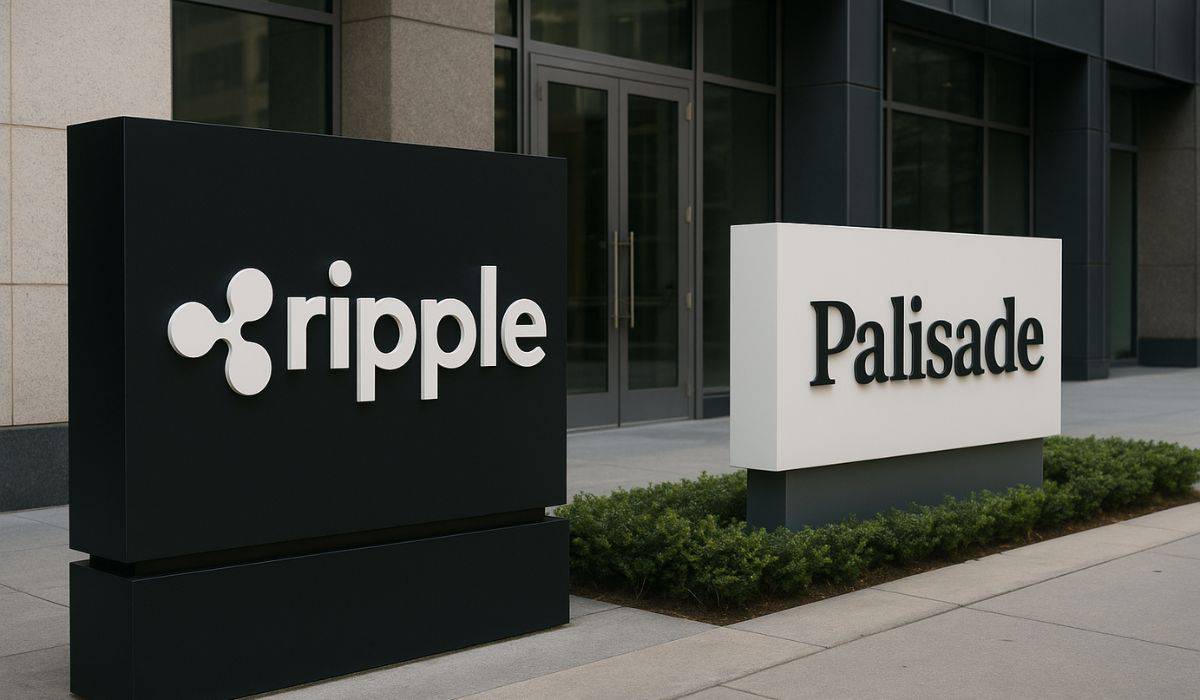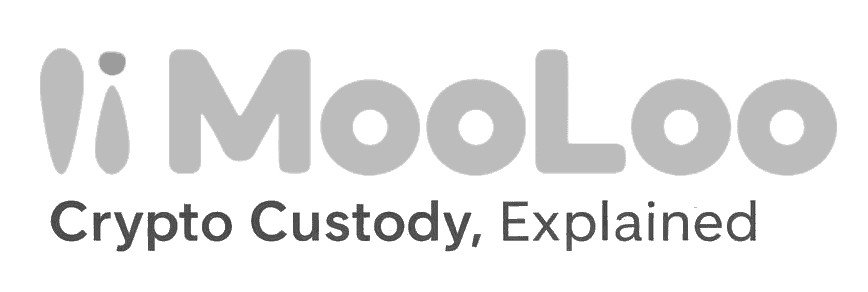Bitcoin ETF Fees Comparison
7.3 min read
Updated: May 7, 2025 - 01:05:11
Updated March 2025. After launching with zero fees in January last year, Bitcoin ETF providers are now charging their full fees, with only VanEck maintaining zero fees, until next year.
With zero fees until January 2026, VanEck is charging the lowest fees of all US ETF providers.
Bitcoin ETF Fee Comparison – March 2025
The launch of Bitcoin ETFs in the U.S. in January 2025 sparked intense competition among providers over fees. However, as of today, all but one have started charging full fees, with VanEck remaining the sole provider still offering zero fees.
History Of Bitcoin ETF Fees
Although the majority of ETF providers launched offering zero fees, this was only a temporary measure, and July and August 2024 saw the return of fees to every platform except VanEck. The following is a breakdown of the fee structure for each provider from launch – and when their fees returned to a standard rate.
- Grayscale has always maintained a fee of 1.5% since converting to a Bitcoin ETF. It is the highest fee structure of any provider and is likely one of the reasons for the exodus of Bitcoin from the Grayscale ETF.
- BlackRock (iShares) reduced its initial fee of 0.30% to 0.25%, then 0.12% for the first 12 months or $5 billion in assets. Assets above $5 billion incur a fee of 0.25%. Based on its current AUM, this means iShares is currently charging fees of around 0.21%. iShares moved to a fee of 0.25% from January 11th 2025.
- Bitwise offered zero fees for the first billion under management and 0.20% for funds above that. After July 11, 2024, Bitwise’s fee moved to 0.20%.
- Invesco was charging zero fees for the first $5 billion in assets. After July 10th 2024, Invesco began charging 0.25%.
- VanEck has zero fees. Initially, this was to be until March 31st 2025 or until it held $1.5 billion in assets, with assets above that incurring a fee of 0.2o%. However, Van Eck has now extended its zero fees plan until January 2026 – and also increased its cut off point to $2.5 billion. When it imposes fees in January 2026, VanEck will charge 0.20%.
- Franklin Templeton charged zero fees until August 2nd 2025 at which time it began charging 0.19%.
- Fidelity went from 0.39% to 0.25% and then waived its fees until August 1st, 2024 at which time it began charging 0.25%
- Ark has always charged 0.21%
- WisdomTree went from 0.50% to 0.30% – then zero fees for six months or the first $1 billion in assets. After July 11th 2024, WisdomTree began charging a fee of 0.25%.
Based on their current rates, Grayscale remains an extreme outlier on the expensive side, at 1.5%.
How Do Bitcoin ETF Fees Work?
ETF fees, primarily the MER, are an important consideration when selecting funds. By understanding these fees and how they are charged, investors can make more informed decisions and choose strategies to minimize costs, thereby maximizing their potential returns.
Types of Fees:
-
- Management Expense Ratio (MER): This is the primary fee associated with an ETF. It covers the costs of managing and operating the fund, including paying the fund manager, administrative costs, and other operational expenses. The MER is expressed as a percentage of the fund’s average assets per year.
- Trading Commissions: When you buy or sell an ETF on a stock exchange, you may incur a brokerage commission, similar to trading individual stocks. However, many brokers now offer commission-free ETF trades.
- Bid-Ask Spread: This is the difference between the highest price a buyer is willing to pay (bid) and the lowest price a seller is willing to accept (ask). It’s not a direct fee but affects the cost of buying or selling an ETF.
- Other Potential Fees: Some ETFs may have additional costs, like sales loads (though these are less common for ETFs than for mutual funds), redemption fees, or early withdrawal fees.
When and How Fees are Charged:
-
- MER: The MER is deducted from the fund’s assets, which means it reduces the fund’s overall return. It’s not charged directly to investors but is reflected in the daily price of the ETF. You won’t see a separate charge for the MER on your account statement.
- Trading Commissions and Bid-Ask Spread: These are incurred at the time of buying or selling the ETF shares on the stock exchange.
Minimizing ETF Fees:
-
- Choose Low-Fee ETFs: Research and compare the MERs of different ETFs. Even small differences in fees can significantly impact your investment returns over time.
- Use Commission-Free Platforms: Many brokers offer commission-free trades for certain ETFs. Utilizing these platforms can save on transaction costs.
- Consider the Bid-Ask Spread: Look for ETFs with high liquidity, as they tend to have narrower bid-ask spreads.
- Avoid Frequent Trading: Since each trade can incur costs (unless on a commission-free platform), minimizing the frequency of buying and selling can reduce overall expenses.
- Be Wary of Specialty or Niche ETFs: These can sometimes have higher MERs due to specialized management or lower trading volumes.
Advantages Of A Bitcoin ETF For Investors
Investing in a Bitcoin Exchange-Traded Fund (ETF) offers several advantages compared to purchasing actual Bitcoin, especially for certain types of investors. Here are some key benefits:
Ease of Access and Familiarity
- Traditional Brokerage Accounts: Investors can buy Bitcoin ETF shares through traditional brokerage accounts, which many investors already have. This eliminates the need to set up and learn to navigate a cryptocurrency exchange.
- Familiar Trading Experience: Trading a Bitcoin ETF is similar to trading any other stock or ETF, offering a familiar experience for traditional investors.
Regulatory Oversight and Security
- Regulated Investment Product: Bitcoin ETFs are subject to regulatory oversight, providing a layer of security and legitimacy that might not be present in some cryptocurrency exchanges.
- Reduced Risk of Theft: Investors in Bitcoin ETFs don’t have to worry about the security risks associated with storing actual Bitcoin, such as hacking or losing private keys.
Simplified Tax Reporting
- Consolidated Statements: Investors receive consolidated tax reporting for their investments, including Bitcoin ETFs, through their brokerage account, simplifying tax filing.
- Avoidance of Complex Crypto Tax Rules: Direct Bitcoin investment can involve complex tax reporting, especially with transactions like trading, spending, or transfers. An ETF simplifies this process.
Diversification and Risk Management
- Exposure Without Direct Ownership: A Bitcoin ETF provides exposure to Bitcoin’s price movements without the need to own the cryptocurrency directly, which can be part of a diversified investment portfolio.
- Professional Management: Some Bitcoin ETFs might offer professional management, which can be beneficial for investors who prefer a hands-off approach.
Liquidity
- Ease of Trading: Bitcoin ETFs can be easily bought and sold during market hours, providing liquidity similar to other stocks or ETFs.
- No Need for Crypto Wallets: Investors don’t need to manage a digital wallet, which is required for holding actual Bitcoin.
Potential Lower Volatility
- Blended Assets: Some Bitcoin ETFs might include other assets, potentially reducing the volatility associated with pure Bitcoin investments.
Conclusion
Despite a user’s best intentions, holding physical Bitcoin is a risky business – with the potential for accidental loss or theft higher than almost any other investment. In such an environment, purchasing a Bitcoin ETF makes sense for many Bitcoin investors – especially those who are new to the cryptocurrency sector. As the fees story above shows, providers in the US Bitcoin ETF market made an aggressive pitch for market share. Despite the initial fee wars, the market is now settling, reinforcing Bitcoin ETFs as a secure and convenient option for investors—particularly those wary of the risks of holding physical Bitcoin.























